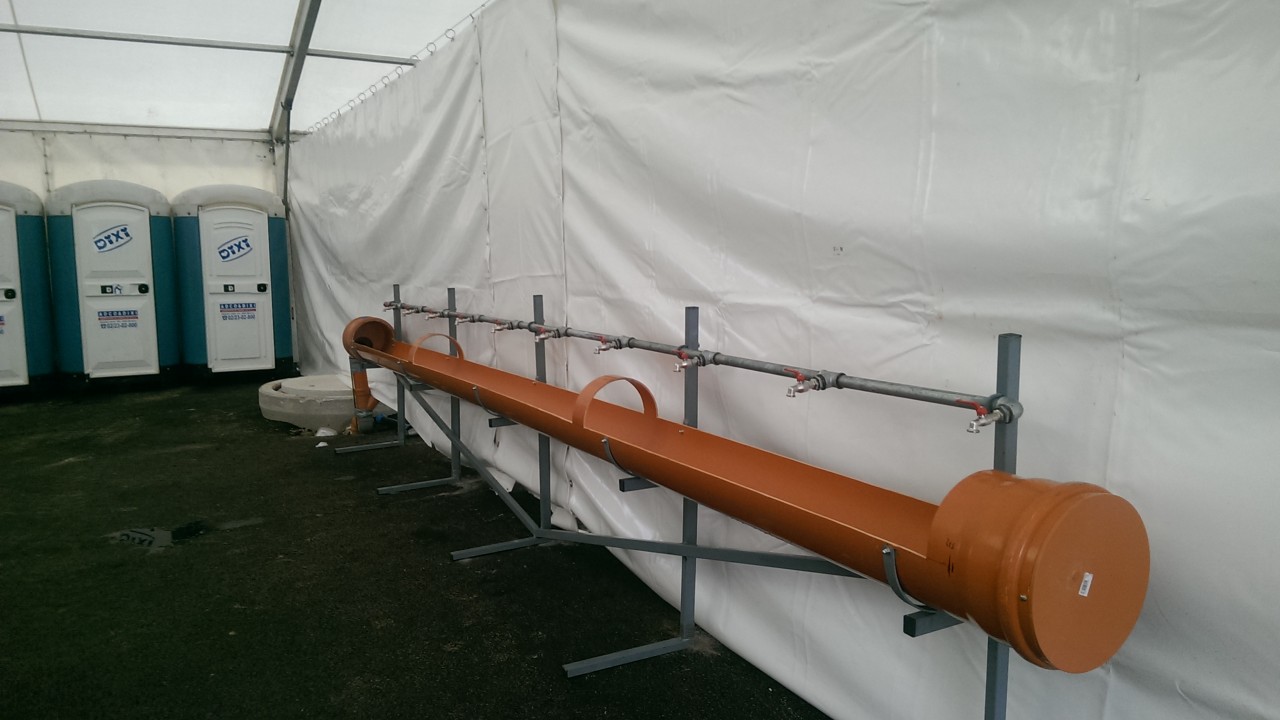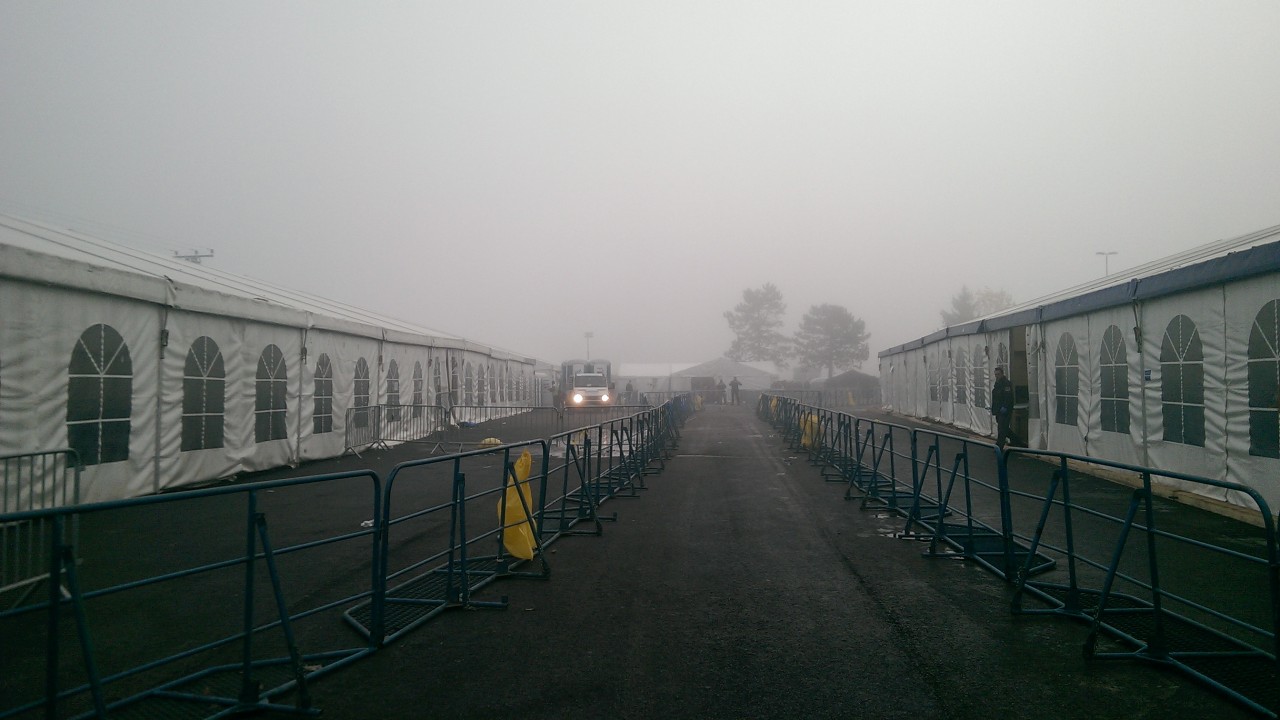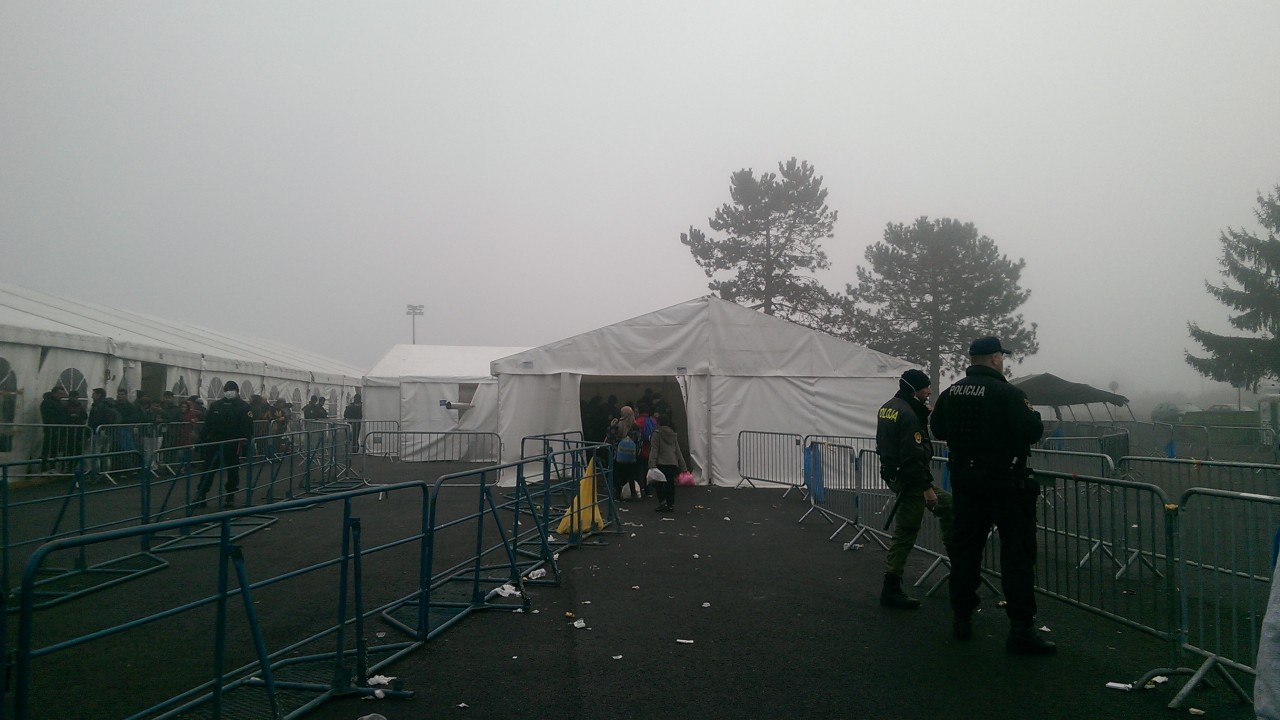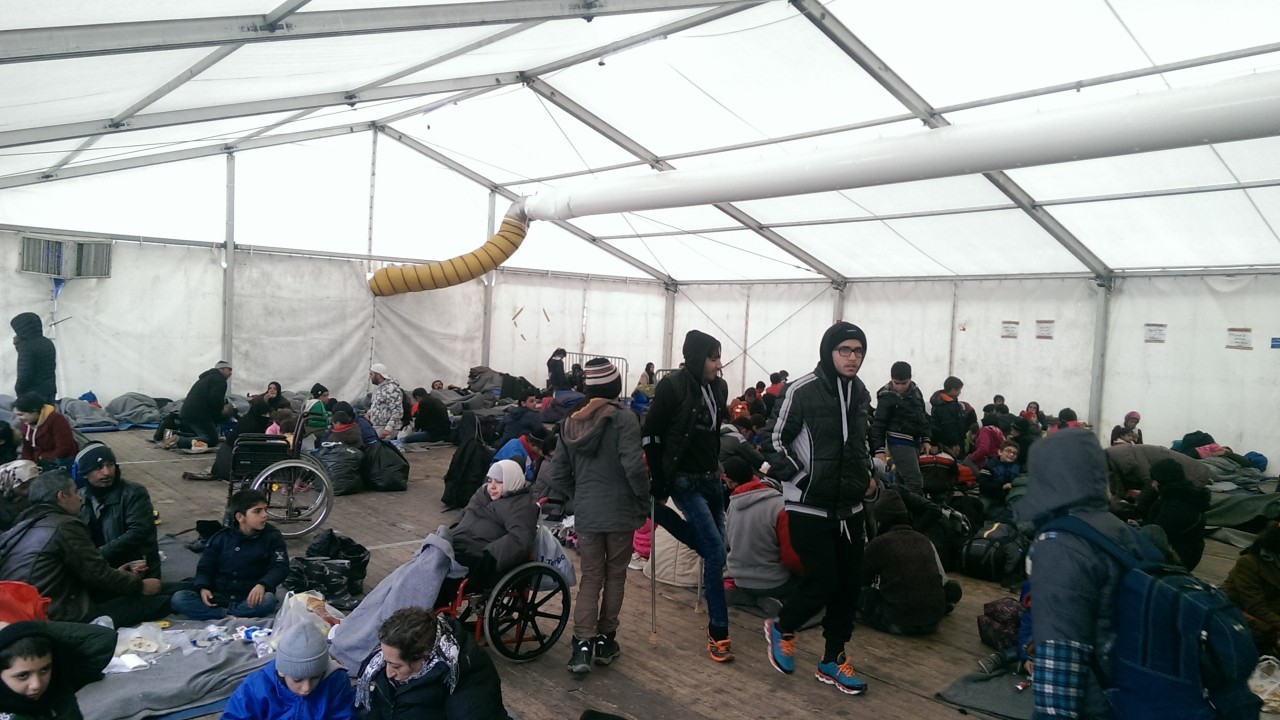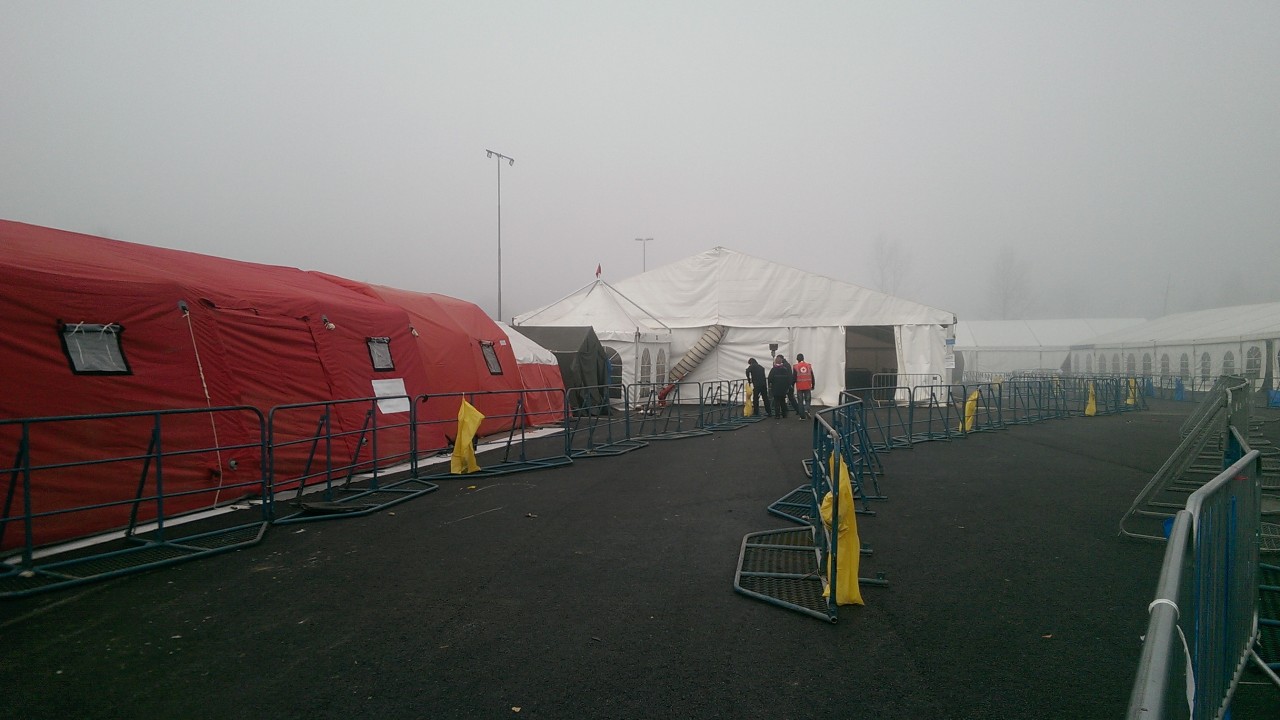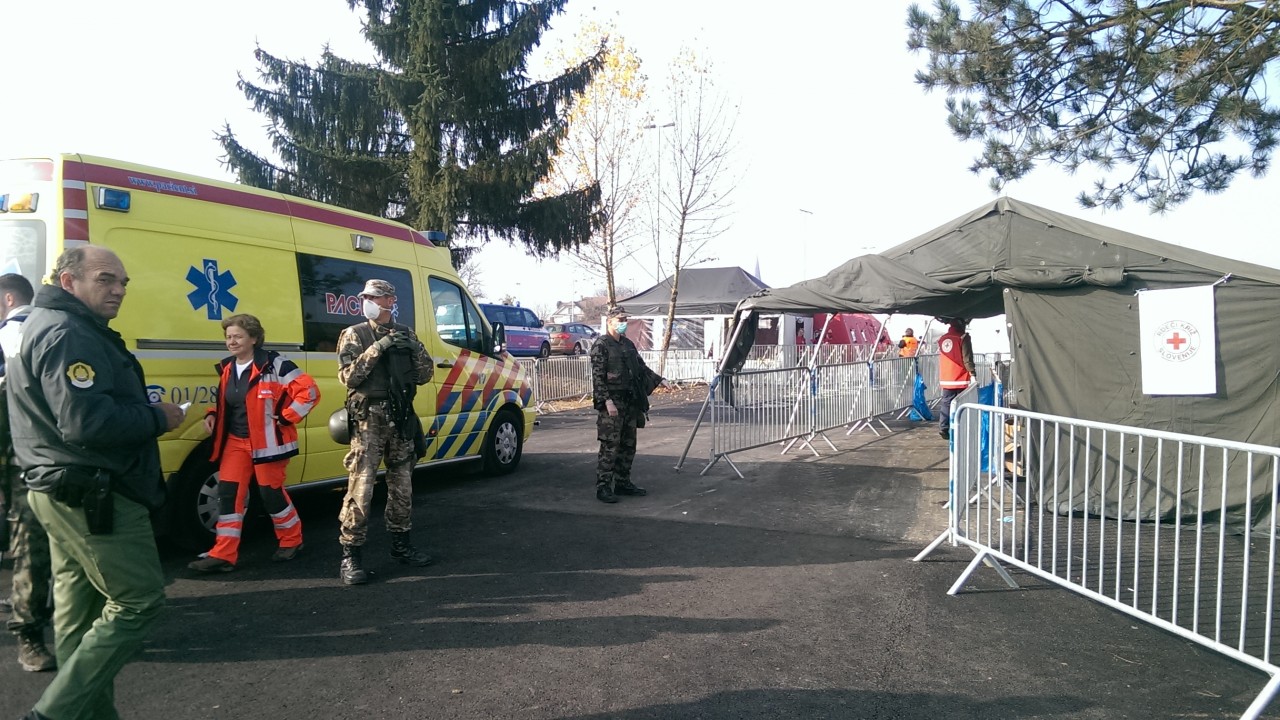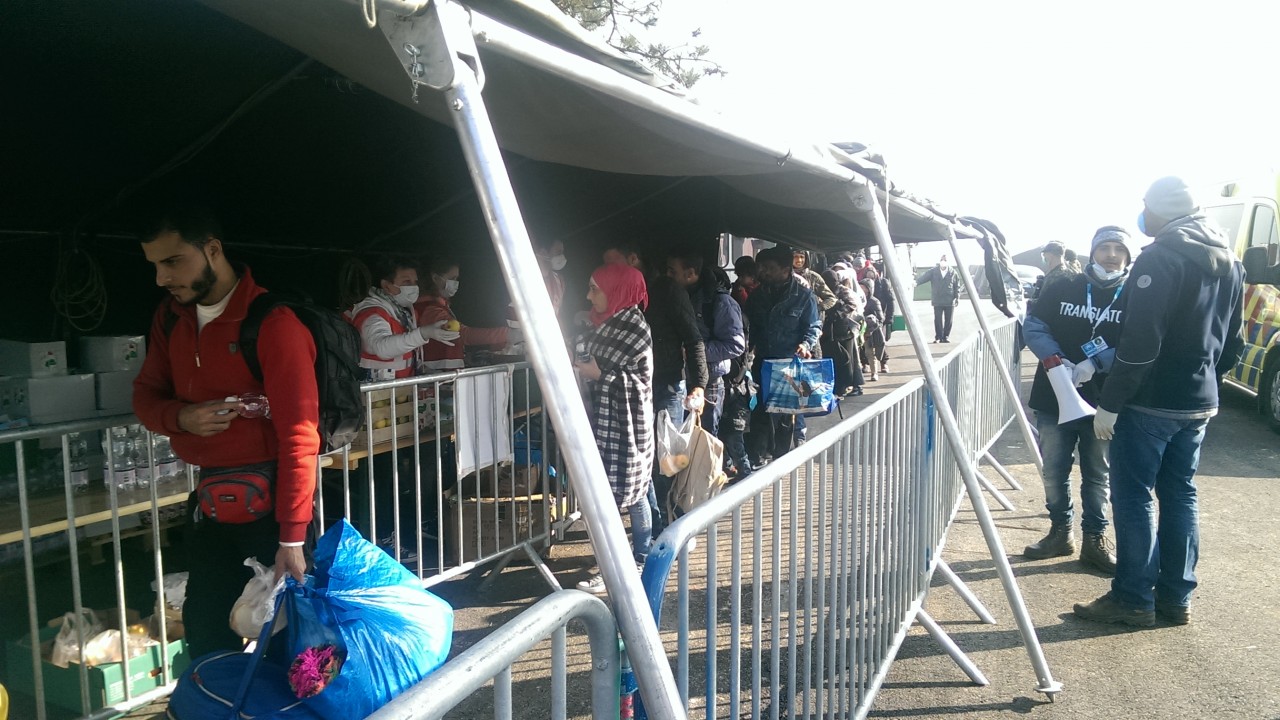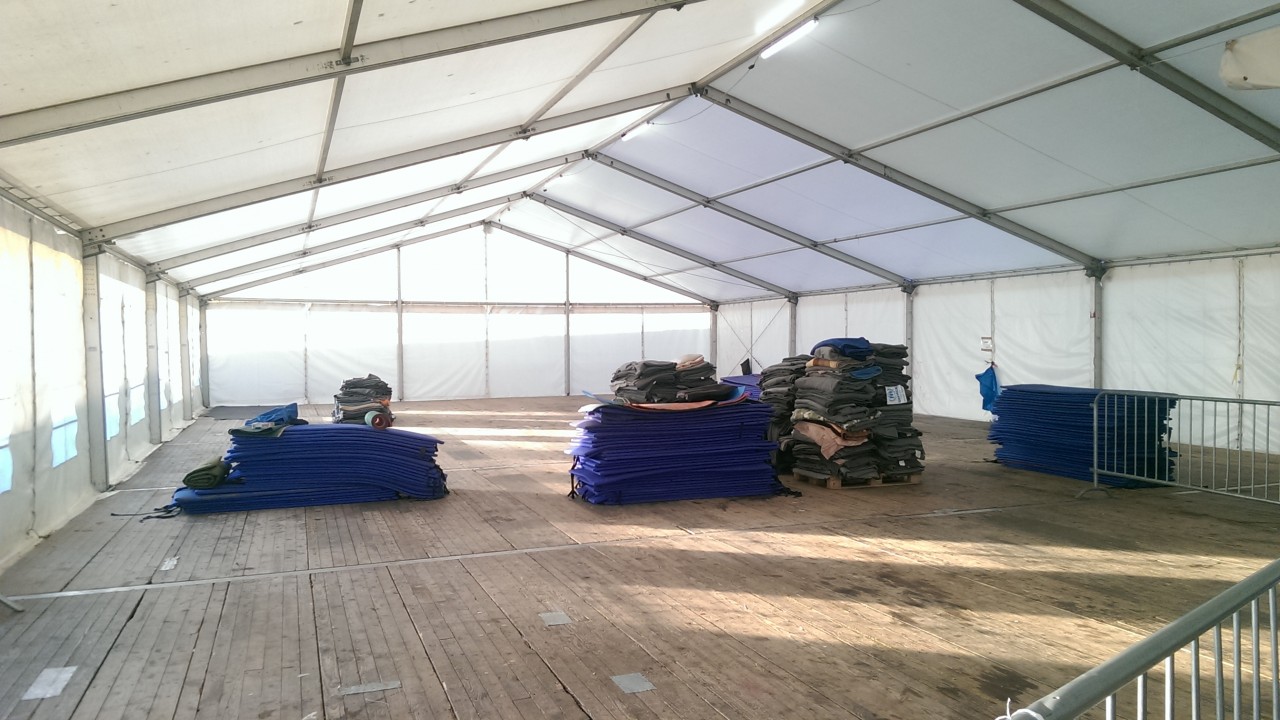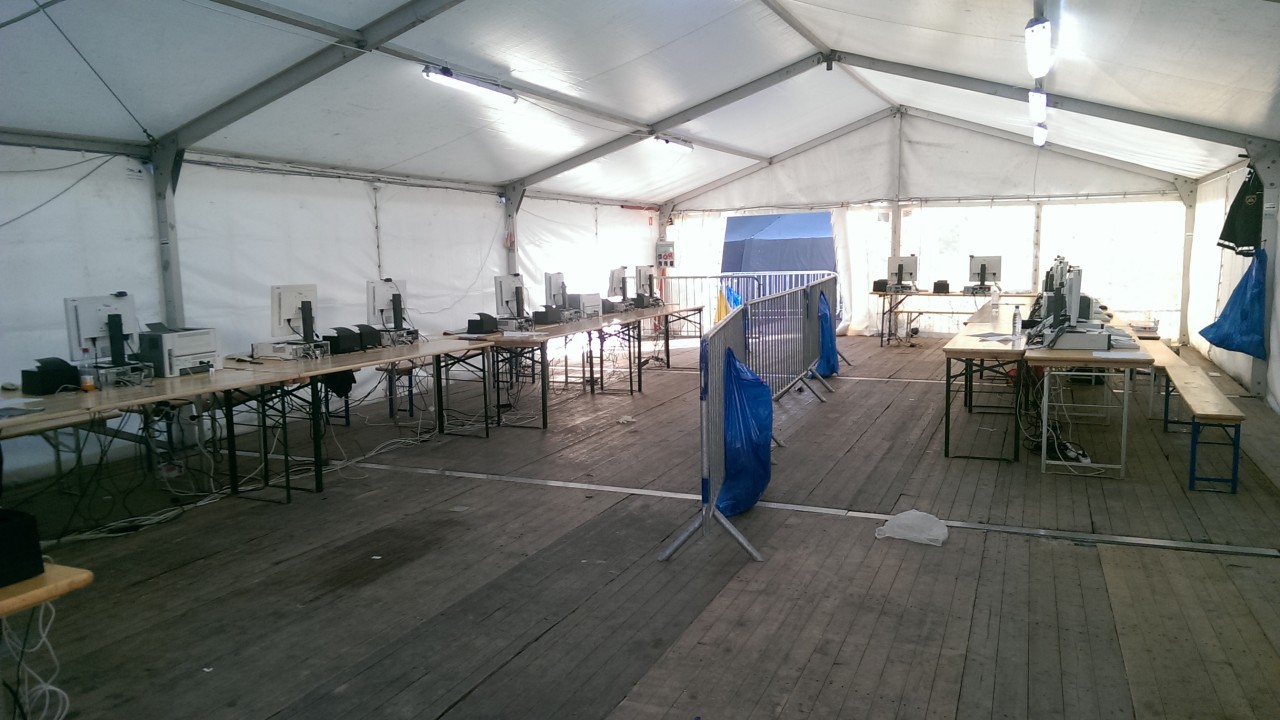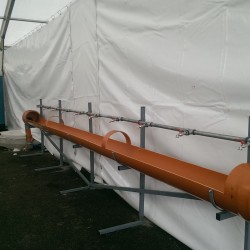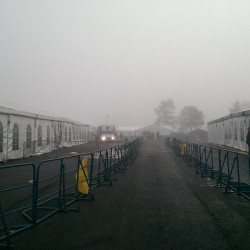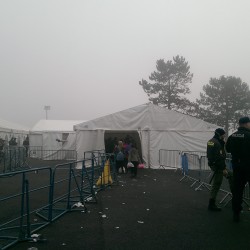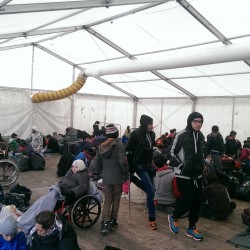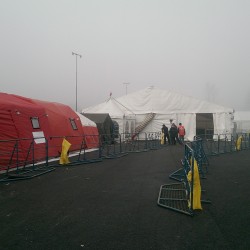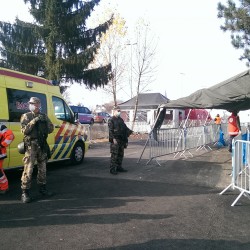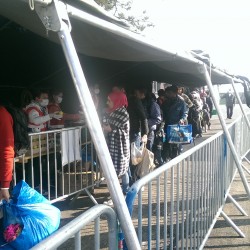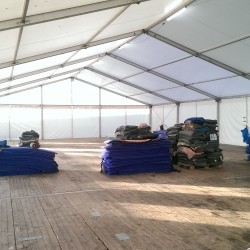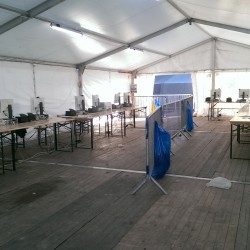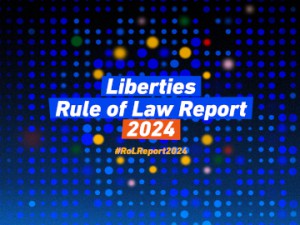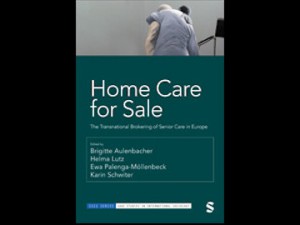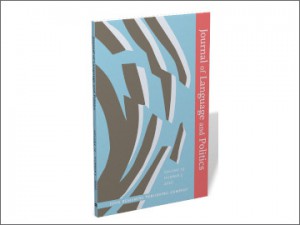Report from Dobova (Reception centre for refugees – Livarna)
17. 11. 2015 | Human Rights and Minorities, Politics
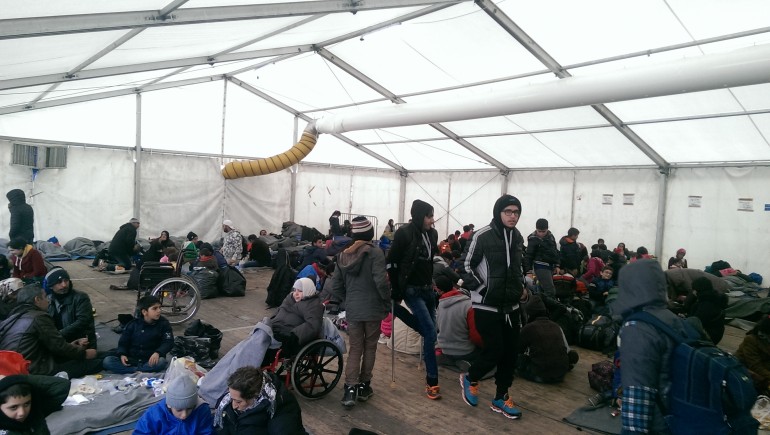
On Friday, 13. november we were at Reception centre for refugees – Livarna in Dobova.
The reception centre was renovated and put back to use the night before. It is much bigger now, all tents are on the paved ground, which is incomparably better for the winter; there are more tents there and there are toilets and washbasins (around 30 toilets and 20 water taps) in two of the larger tents, which is again much better in case of rain and snow, as they are under the roof. In addition, they will place the UNHCR information tent next to the medical tent and the Red Cross RFL tent. It seemed problematic that the refugees were not able to approach the Red Cross tent with clothes, shoes and food. They had to wait in the fenced area for the Red Cross volunteers to come and ask if anyone needs something.
There were already 540 people in the reception centre at 8 am, waiting in a tent to continue their journey. Some of them were sitting and some lying on the floor on the blankets, they were walking outside (but only up to the fence or the toilets) and asking how much longer they will have to wait.
Some were asking to see a doctor, so we escorted them through a maze of fences (or over the fence) there and back. Everything was alright when we escorted the children, but when we escorted adults who did not seem sick, some policemen really opposed, unless if it was really urgent. They were glad to provide care to everyone in the medical tent, even if they only had a cold or something similar, as there was no crowd, i.e. the tent was empty most of the time. They had considerable supplies of medication (for example, also nasal sprays) and they gladly distributed it.
Regarding the mentioned group of 540 people – police told us in the morning that they will have to wait a little longer and then go on the train to Jesenice, but, as no one knew exactly when they will continue, we were not able to answer their questions.
This group of people, which arrived to the centre before 8 am, saw another group which arrived around 11 am and continued the journey immediately after the registration. They did not understand why the “new” group immediately continued, and they continued to wait. There was some reluctance among people because nobody was able to tell them when they will continue. At one point, they crowded in the small fenced area outside the tent because they thought they will move on. There was also a minor dispute, but the translators tried to calm them. Initially the police told us that they will board on buses in 5 minutes, and shortly after that there was a change of plan and that they will not be moving on for at least another hour. Translators told the people they should go back to the tent and wait and that they will call them when the buses arrive. Since we did not know exactly since when this group has been at Livarna, we presumed it was since 8 am (they got food at the entrance to the reception centre, i.e. before 8 am). Around 1 pm, when few people have already asked for food and milk for children and infants (and when we noticed that they are also becoming impatient and wanting to move forward), we asked the police if they could distribute some food.
They agreed and arranged with the Red Cross to distribute food at the fence in front of the tent. Just around 2 pm, when the RC volunteers started to distribute food, the buses arrived and people, naturally, immediately packed their things and headed toward the exit to board on buses.
Boarding was really fast. Some police officers were very attentive to families and vulnerable groups (e.g. people with disabilities, i.e. those in wheelchairs), and some were very rude, cursing and yelling at people. Besides the fact it was completely unacceptable, it was also absolutely unnecessary as there was no hurry. It was just a kilometer long bus ride to the railway station where these same people then waited for the train for at least an hour. Around 4 pm the train went toward Jesenice. Around 10:20 am, the train arrived with approximately 500 people who then went to the reception center to register. It is inappropriate that armed soldiers “welcome” people right at the entrance of the reception centre. It is probably frightening, especially for those who fled the war zones and areas of conflicts, to confront armed soldiers. When people from the buses entered the centre, they first passed the Red Cross tent, where they got the food. It is reasonable that the food is being distributed at the entrance, as that way it is ensured that indeed everyone gets it. However, as people are being rushed and everything goes fast, we noticed that some people (especially families) had difficulties because they had many things in their hands (plastic bags, blankets, bags and infants or children). In this kind of situations, the help from Slovene Philanthropy volunteers and those employed through public works programme is very welcome, as their role is to assist people (even with carrying things or children or help with walking). People stood in line for a security check, after that they went to the tent for registration and then they waited behind the fence for the buses to take them back to the railway station. The whole procedure took about two hours.
There was some confusion before the security check and the registration, as a police officer (who was standing by the registration tent) told us to tell the families to stay together, even before the security check, so they would not have to wait for each other and huddle in a small space afterward. When we wanted to inform the families at the entrance to the security check tent to stay together, police told us that women and children have to stand in one line, and men in another (female officers searched the women and children and male officers searched men, hence they were separated in two lines). This did not cause any trouble in this particular case, as they all went back to the railway station by buses after the registration. However, there was an issue with the police officer who was waiting for the people in front of the tent and directed them in two lines. He was very intimidating, being tall and having a strong body constitution, and behaving very arrogantly on top of it – he commanded people where to go by pointing fingers to a woman, for example, and rudely saying “go” (to other line). Every time when family came and he ordered women to go in other line, people started saying “family, family”. His response to the latter was rude, he spoke in Slovenian and often raised his voice, if people would not move the same second. We started to explain to people why he is sending them in two lines. When they heard the reason, they were calm, they understood that they will unite at the end of the tent and there were no more problems. Initially, we thought that the mentioned police officer does not speak English and therefore shouts in Slovenian and gives only short orders, but eventually it turned out that he speaks English. When he once again unnecessarily raised his voice to some family who did not understand his command, we told him: “If you explained, people would understand.” It seemed he was not thrilled about it as he muttered: “They understand, yeah, they sure do”. However, we later heard him talking to people in English and saying that it is only security check and the families will continue ahead together. We started to think that he will maintain such a “normal” attitude, however, as soon as we went few steps away, he started yelling at people again regarding the two lines (completely unnecessarily, he was obviously venting, as he had the same attitude when people were boarding the buses).
“Fortunately”, there was very friendly senior police officer between the security check and the registration tent, who really made sure that families stay together, he allowed for everyone to wait for each other, to go to the registration together, he talked to them, he joked and acted toward them like he would to any other human being. In short, he gave the refugees a completely different feel.
The registration was going on quite quickly, as there were 16 or even 18 computers. Police took everyone’s photographs and issued permissions to remain, whereas no fingerprints were taken that day.
We saw the VURS (Veterinary Administration of Republic of Slovenia) inspector who came to get one refugee’s puppy (there was another case likewise that day in the morning). For all refugees who arrive to Slovenia with their pets applies as follows: animal (most likely dogs and maybe cats) are taken and transported to the nearest shelter, where they are held for a month in quarantine (regardless of whether the animal shows signs of any disease or not). After a month, the owners can call the shelter (they get the contact when the animal is taken) and in case they want their animal back, make the necessary arrangements – they can send the animal to other country at their own expense.

